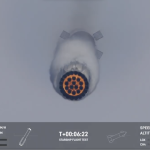A couple of people asked me this; the short answer:
[1.] Because the privilege applies only when a witness reasonably fears prosecution, and the pardon precludes prosecution for any “offenses against the United States which he has committed or may have committed or taken part in during the period from January 1, 2014 through December 1, 2024,” a pardon may indeed eliminate the privilege, and allow a court or congressional committee to order Hunter Biden to testify. “[I]f the witness has already received a pardon, he cannot longer set up his privilege.” Brown v. Walker (1896). “[A] witness may be compelled to testify concerning his involvement in a crime when he is protected from later prosecution … by the applicable statute of limitations … or by a pardon.” Pillsbury Co. v. Conboy (1983) (Marshall, J., concurring) (citing Brown).
[2.] But the privilege disappears only when there’s no realistic prospect of prosecution by any American government, federal or state. So if a witness is asked about something, and the answer might lead to state prosecution for which the state statute of limitations hasn’t run, the witness can refuse to testify because of that risk of state prosecution, even if a federal prosecution is taken off the table by the federal pardon. (Recall that a Presidential pardon only pardons for federal crimes.) This is relevant because some conduct can violate both state and federal law.
How this would play out as to any particular investigation of Hunter Biden’s behavior, I leave to others.
The post Can the Just-Pardoned Hunter Biden Claim Privilege Against Self-Incrimination, if Questioned About His Crimes? appeared first on Reason.com.






